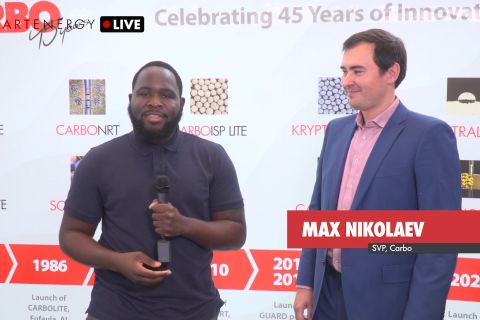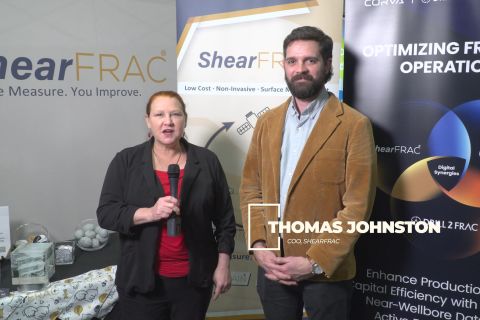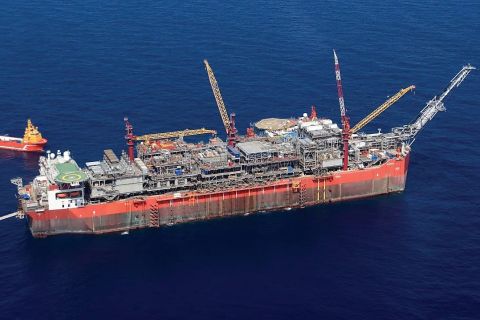
(Source: Shutterstock.com)
[Editor's note: A version of this story appears in the July 2020 edition of E&P. Subscribe to the magazine here.]
Even though the shale market is showing early signs of recovery as crude prices emerge from dramatic declines earlier this year, the outlook of WTI crude still remains weak, with limited drilling activity expected in the second half of the year. Additionally, a recent report by the International Energy Agency shows global energy investment is expected to fall by $400 billion this year, and U.S. shale will be one of the hardest hit regions where capex is set to fall in half.
With production falling to historic lows across major U.S. shale basins, several oilfield service firms like Halliburton, Schlumberger and McDermott are turning to the Middle East and other international markets for relief.
“The Middle East is a resilient market, and we anticipate that OPEC countries in the region will be the least affected by this downturn,” Sid Whyte, Halliburton’s senior vice president of the Middle East, North Africa and Asia-Pacific, told E&P.
He added that the impact of the downturn on the Middle Eastern region is less severe compared to other international markets such as offshore Africa and Latin America, which could see double-digit declines this year.
Whyte explained that international markets have been an important component of Halliburton’s business, and the company has focused on its long-term viability.
“Halliburton has had international operations since the inception of our company, and today they represent about half of our total business,” he said.
Halliburton is also working on numerous projects across the Middle East for a wide range of customers. One of the company’s focus areas is mature fields, which represent more than 80% of the region’s reservoirs, Whyte said, adding that operators in the Middle East are interested in bringing new technologies and learning curve of North American shale and applying those practices to develop the unconventional market throughout the region.
These include advances in reservoir insight, customized chemistry, surface efficiency and precise directional drilling. Localization is also an important part of Halliburton’s strategy to bring costs down. For instance, the company has ongoing R&D activities in the Middle East to develop more efficient methods of using local sand and water for fracturing. Additionally, the company has collaborated with many national oil companies (NOCs) on unconventional gas projects, which are vital to produce resources for their economies’ local consumption and export needs.
Whyte also clarified that even though Halliburton may have to manage its costs differently in the short term, the company will not fundamentally change its core operations and will stay focused on helping its customers reduce costs and increase production.
Despite near-term headwinds, he said Halliburton will continue investing and growing its portfolio of products and services to help maximize its international customer’s asset value.
“International projects and contract structures tend to be longer-term oriented. However, in the face of these unprecedented circumstances, international oil companies [IOCs], national oil companies and independents are all reassessing their priorities,” he said. “In the long term, many international customers have a mandate to produce reserves because they are closely tied to their country’s economic health. Halliburton is well positioned to collaborate with operators and deliver the capabilities to achieve their production targets.”
New contracts
“Given the global strain across the industry, similar to earlier oil crash cycles, we are not surprised that the wider supply chain turns its focus on the substantial Middle East market to generate business and fill the gap in U.S. backlog,” said Craig Melville, vice president of commercial with McDermott’s Middle East business. “However, success in the Middle East has been demonstrated to depend on many factors, and this requires a comprehensive and robust long-term strategy. Showing up in the Middle East one day and expecting short-term success is highly unlikely, even in the unprecedented times we are experiencing.”
McDermott was recently awarded “a sizeable” contract from a Middle East customer to carry out FEED work for offshore riser platform topsides.
“The primary focus of this contract is to undertake some basic technical work to assess the optimum configuration of the riser platforms and associated pipeline facilities to meet the customer’s predefined reservoir data, design life, field operations and production requirements,” Melville explained. “The general idea is to look into the various available options for the offshore facilities and evaluate each on the basis of key criteria such as safety-in-operation, capital costs, ongoing life-cycle operating costs and environmental aspects to determine the optimum design scheme.”
McDermott established its presence in the Middle East close to 50 years ago, and the region is one of the company’s strongest and most successful markets.
“The company’s long standing presence in the region, together with the strong relationship we have developed with the major oil and gas NOCs and IOCs in the region, means that we are actively involved and pursuing all of the planned opportunities in the upstream, downstream and LNG sectors,” Melville said.
Baker Hughes also announced during its first-quarter 2020 results that, despite challenging market dynamics, the company’s Oilfield Services segment has continued to strengthen its position in important international markets, including several large multiyear drilling and completions contracts for projects across the Middle East.
Given the global strain across the industry…we are not surprised that the wider supply chain turns its focus on the substantial Middle East market to generate business and fill the gap in U.S. backlog.
—Craig Melville, McDermott
This includes a five-year contract to provide data visualization services using its WellLink Real-Time platform to gather, transmit, store and display upstream field data to enable greater operational efficiency, safety and performance across its drilling operations.
Baker Hughes’ Oilfield Services segment also secured a second five-year contract to provide drill bits for a project in Kuwait as well as multiple contracts to provide liner hangers and intelligent completions systems for different customers across the region.
Resilient markets
According to a Schlumberger spokesperson, during the first quarter, the feedback from customers combined with the company’s own analysis suggested global capex spend would decline about 20% this year. The largest impact of the cuts would be faced by North America, where the capex could drop by 40%. In contrast, there would be a significantly lesser impact on international E&P capex, which the company estimated would decline by about 15% this year.
“In that context, we elected to accelerate the new corporate strategy that we announced last fall. One of the elements of that strategy entails scaling our operational footprint in North America land to fit the activity,” the spokesperson said. “At the same time, we have also been emphasizing our executional capability internationally, where we see a less severe decline, as some long-cycle offshore and land development markets should remain relatively resilient this year. The international rig count is declining, but the declines are varying from basin to basin. Consequently, we are taking a fit-for-basin approach to our business in the major international basins.”
The company also has been executing its technological capability globally to support remote operations and is focusing on its digital strategy to deliver performance impact for customers.
“During the first quarter, we were successful in providing customers with resilience and performance, and we anticipate building on that success, fully leveraging our international franchise to keep an optimum activity mix throughout 2020 and beyond,” the spokesperson said.
Recommended Reading
Exclusive: Carbo Sees Strong Future Amid Changing Energy Landscape
2024-03-15 - As Carbo Ceramics celebrates its 45th anniversary as a solutions provider, Senior Vice President Max Nikolaev details the company's five year plan and how it is handling the changing energy landscape in this Hart Energy Exclusive.
ShearFRAC, Drill2Frac, Corva Collaborating on Fracs
2024-03-05 - Collaboration aims to standardize decision-making for frac operations.
The Need for Speed in Oil, Gas Operations
2024-03-22 - NobleAI uses “science-based AI” to improve operator decision making and speed up oil and gas developments.
Remotely Controlled Well Completion Carried Out at SNEPCo’s Bonga Field
2024-02-27 - Optime Subsea, which supplied the operation’s remotely operated controls system, says its technology reduces equipment from transportation lists and reduces operation time.
Oceaneering Won $200MM in Manufactured Products Contracts in Q4 2023
2024-02-05 - The revenues from Oceaneering International’s manufactured products contracts range in value from less than $10 million to greater than $100 million.





